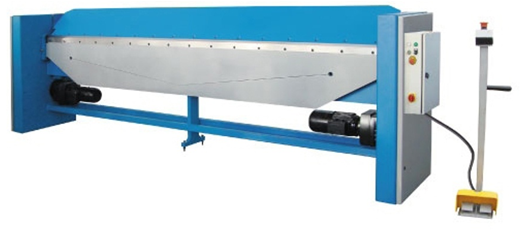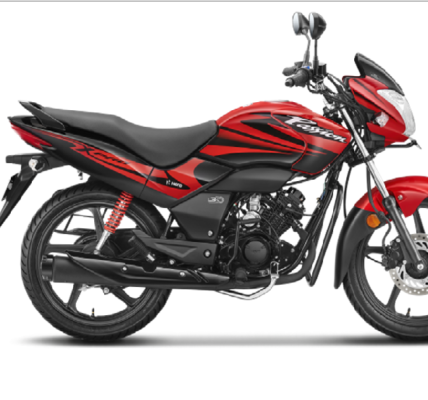Efficiency and accuracy are critical in the field of modern production. Machine tool technology’s essential components, metal folding machines, are a prime example of this requirement. With the ability to precisely and consistently shape metal sheets into a variety of shapes, these machines have completely changed the metalworking business. This blog explores the usefulness, advantages, and uses of metal folding machines in modern industry, highlighting their indispensable nature.
Comprehending Metal Folding Machinery
Some of the typical types of metalworking equipment include press brakes and metal benders which normally refer to metal folding machines used in the bending and folding of sheet metal. The workpiece is held between a punch and dies so that the proper angle of curvature may be obtained. This is the basic principle. The idea is that the more you refine the selection criteria, the people who are interested in your gift will make themselves known. Applicable across a variety of industries such as automobile, Aerospace, construction, and electronics manufacturing industries relying on this method to make parts.
Metal Folding Machine Types
Metal folding machines come in various varieties, each appropriate for a particular use
Manual Foldig Machines: These function best in workshops or small-scale companies where output needs are modest and require human labour.
Hydraulic Folding Machines: These machines are suitable for medium to large-scale production because hydraulic power offers more control, speed, and output force than mechanical here.
Pneumatic Folding Machines: These make use of air pressure, and while serving a purpose in some applications, are generally not as forceful as hydraulic counterparts.
Electric Folding Machines: These have electric motors as their power source and combine efficiency, precision, and power to provide a versatile variety of uses.
CNC Folding Machines: The gold standard of contemporary metal folding technology is represented by Computer Numerical Control (CNC) machines. Their exceptional precision and consistency in performing complicated bending jobs make them perfect for elaborate designs and mass production.
Advantages of Folding Metal Equipment
Several benefits result from using metal folding machines in production processes:
Exactness and Accuracy
Metal folding machines have very high accuracy and precision. Specifically, CNC folding machines may reach tolerances as small as 1/1000 of a millimeter. To reduce the need for extra machining or adjustments, this level of accuracy is essential for producing components that fit precisely in assemblies.
Uniformity and Reliability
The reliability with which metal folding machines can yield results is one of its main benefits. After a machine is calibrated and set up, it can create dozens or even hundreds of identical parts with very little difference. Maintaining quality standards and guaranteeing part interchangeability depend heavily on this uniformity.
Higher Output
By automating the bending process, metal folding machines greatly increase production. For example, CNC machines can run constantly with less monitoring, which boosts productivity and lowers labour expenses. Manufacturers can fulfill demands for high-volume manufacturing and tight deadlines because of the speed and efficiency of these devices.
Minimised Material Wastage
By making sure that every piece of metal is used effectively, precision bending minimises material waste. Precision folding reduces mistakes and waste, which lowers costs and promotes a more environmentally friendly manufacturing process. As industries work to lessen their influence on the environment, this factor is becoming more and more crucial.
Enhanced Security
Safety measures built into contemporary metal folding machines shield users from mishaps. While saving costs through hands-off operation, high-speed settings, setting adjustments, and fast cycle times, the use of automated control features and safety measures also minimizes chances of workplace accidents, offers compliance with the Occupational Safety and Health Administration or OSHA standards through emergency stop buttons, and integrates the guards.
Utilisation of folding metals:
Automotive Sector
Body panels, brackets, and structural pieces are among the components made by metal folding machines used in the car industry. The machines’ precision and repeatability guarantee that every component satisfies rigorous quality standards, so augmenting the overall safety and functionality of automobiles.
Building and Construction Sector
For the production of structural components including beams, columns, and trusses, the construction industry uses metal folding machines. Custom forms and sizes can be created with the use of these machines, which promotes creative architectural designs and effective building techniques.
The latest advancements in metal folding technology
Innovations in metal folding technology are constantly expanding the possibilities and productivity of these devices. The following are a few recent innovations:
Cutting Edge CNC Technology
Cutting-edge software on contemporary CNC folding machines enables intricate programming and in-the-moment modifications. Manufacturers can now produce complex designs with extreme precision and little setup time thanks to this technology. CNC machines can also be combined for smooth production processes with other manufacturing equipment.
Energy Conversion
Modern metal folding machine models are made to use less energy, which lowers power usage and running expenses. This efficiency is a result of improvements in hydraulic and electric drive systems, which also increase the machines’ affordability and sustainability.
Selecting the Proper Metal Folding Device
Several considerations, such as budget, material kinds, and production requirements, must be considered while choosing the right metal folding machine. The following factors should be kept in mind:
Production Amount
CNC and automated folding machines are perfect for high-volume production because of their speed, accuracy, and continuous operation. Manual or somewhat automated equipment could be enough for smaller activities.
Details of the Material
Think about the different kinds and densities of metal you’ll be handling. Verify that the machine you use can process these materials without sacrificing accuracy or calibre.
Intricacy of Designs
Investing in cutting-edge CNC machines with complex programming skills is crucial if your production requires complex designs and close tolerances. Simple hydraulic or pneumatic machinery could be sufficient for less complex jobs.
Financial Restraints
Good machine tools have more upfront expenses even though they have many advantages. This budget evaluation should consider the long-term return on investment, which should consider things like increased productivity, lower labour expenses, and material savings.
Future Requirements
Project future growth and production requirements. Long-term costs may be lower by investing in a flexible machine that can be expanded or improved rather than a basic device that can become outdated.
Conclusion:
With its accuracy, effectiveness, and adaptability to various sectors, metal folding machines are essential to good machine tool technology. They are essential in the current competitive manufacturing environment because of their capacity to consistently produce high-quality parts with little waste. These robots’ capabilities are only going to get greater as technology develops, which will further emphasise their crucial position in manufacturing’s future.









